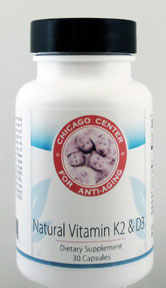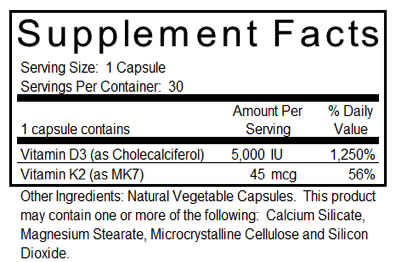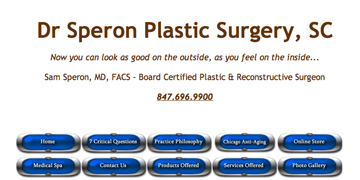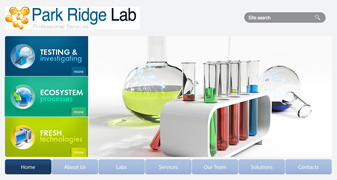Buy Cheap All-Natural Chicago Vitamin K2 & D3 Anti-Aging Herbal Supplements Vitamins
 Why pick our Natural Vitamin K2 & D3 Herbal Supplement?
Why pick our Natural Vitamin K2 & D3 Herbal Supplement?
There are many options available today when choosing vitamins and anti-aging supplements. This means that you have to be careful as a consumer and make sure you choose a reliable manufacturer who only uses the highest quality ingredients. The Chicago Center For Anti-Aging has partnered with one of the most reputable manufacturers which helps ensure the quality of our private line of vitamins and anti-aging supplements. Quality is what should be the most important attribute you should look for to help make your decision, not cost. Look for quality you can trust.
 Natural Vitamin K2 & D3
Natural Vitamin K2 & D3
Dose Form
 Two-piece veggie cap, size 1
Two-piece veggie cap, size 1
Other Ingredients
Natural Vegetable Capsules. This product may contain one or more of the following: Calcium Silicate, Magnesium Stearate, Microcrystalline Cellulose and Silicon Dioxide.
Formula Rationale:
Osteocalcin is an important bone building protein. In order for osteocalcin to be utilized by bones it must first be carboxylated, a process that requires vitamin K. Vitamin K2 with D3 provides a synergistic approach to bone health.
Research Findings:
Vitamin K:
- There are three groups of vitamin K which include K1, K2, and K3. Vitamin K1 is found in green leafy vegetables and produced in higher plants, K2 is produced by bacteria and not in higher plants, while K3 is a synthetic analogue and typically not used in dietary supplementation.1
- Vitamin K has historically been known as the coagulation vitamin, however more recently vitamin K is being recognized for its role in bone health as well as cardiovascular health.
- Vitamin K is needed as a cofactor in the production of osteocalcin, an important bone building protein. It is also needed for the activity of matrix Gla protein (MGP), a protein that may prevent arterial calcification.2,1
- Vitamin K is a cofactor in an enzyme mediated reaction known as gamma-carboxylation. The proteins osteocalcin and MGP contain glutamic acid (GLU) this is changed to a modified form of glutamic acid known as gamma-carboxyglutamic acid (GLA) by the process of gamma-carboxylation. The proteins containing GLA (proteins that have been carboxylated) can then bind to calcium.1,3,2
- Osteocalcin requires higher levels of vitamin K for the total gamma-carboxylation of the protein, whereas blood coagulation proteins such as factors II, VII, IX, and X need much lower levels.1
- Serum total osteocalcin (TOC) and carboxylated osteocalcin (COC) were examined in 792 home dwelling men and women age 70 years and older for 5 years. It was found that low serum COC concentrations and the ratio of COC:TOC predicts the occurrence of fractures in older adults.4 Anticoagulant drugs block the recycling effects of vitamin K.5,1
- Vitamin K2:
- 4 different studies were performed comparing the effects of vitamin K1 to natto-derived MK7.6 Volunteers were given 1 mg of K2 as MK7 and 1 mg of K1. It was found that both MK7 and K1 were absorbed well with peak serum concentrations at 4 hours after ingestion. It was found that K1 had a considerably shorter half life than K2.
- In the second study, volunteers received increasing doses of K1 and MK7 (50-500 mcg/day). Serum vitamin Kconcentrations were measured at 4 and 24 hours after ingestion. Each dose was followed by a 2 week wash out period before a higher dose was given.
- A significant statistical difference was found in serum levels of K1 compared MK7 at 4
hours at doses of at least 150 mcg, and at 24 hours the difference was significant at all doses. This study shows that doses of 100 mcg of MK7 are available in the body for 24 hours following ingestion whereas vitamin K1 does not stay in the system as long.
- In the third study, osteocalcin carboxylation was measured during a prolonged intake of vitamin K in a randomized cross over trial. Volunteers received either vitamin K1 or MK7 for 6 weeks with a 12 week washout period before receiving the other form of vitamin K for another 6 weeks. Serum levels of MK7 accumulated during the first 2 weeks before reaching a plateau level, whereas K1 remained just above the placebo value during the length of the study. Both K1 and MK7 increased osteocalcin carboxylation, however the effect only continued to increase during the study period when taking MK7. At the end of the study, the carboxylated osteocalcin to uncarboxylated osteocalcin ratio was 3 times higher for MK7 than K1.
- In the fourth study, vitamin K interference with anticoagulants was studied. MK7 was found to be more potent than K1.
- 130 mcg/day of MK7 was found to give roughly a comparable decrease in INR compared to 315 mcg/day of K1.
- The Rotterdam Study examined the effects of dietary vitamin K1 and K2 on aortic calcification in a population of 4807 Dutch men and women age 55 years and older with no history of myocardial infarction. The subjects were followed for 7-10 years. Subjects indicated on a checklist all foods and beverages they consumed, subsequent values of vitamin K1 and
K2 were assigned to each food/beverage. It was found that those with adequate intakes of menaquinone (the mid and upper tertiles) had a reduced relative risk of CHD mortality compared to the lower tertile and was also inversely related to all cause mortality and severe aortic calcification. Vitamin K1 intake was not related to any of the outcomes.3
Natto is a MK7 rich food. One study examined the effects of natto on the risk of fracture in three different populations of women (Japanese women in Tokyo, Hiroshima, and British women). Japanese women in Tokyo consume large amounts of natto and were found to have serum MK7 concentrations at 5.26+/-6.13 ng/mL, in Japanese women in Hiroshima the
concentrations were 1.22+/- 1.85 and 0.37+/-0.2 in British women. Women with higher serum concentrations of MK7 (those with high natto consumption) were found to have a reduced risk of hip fracture.7
Vitamin D:
- 172 women with osteopenia or osteoporosis were given either vitamin K2, vitamin D3, vitamin K2 and D3, or dietary therapy alone. Bone mineral density was measured prior to therapy and at 6, 12, 18, and 24 months with treatment. After 24 months the group receiving the K2 with D3 had markedly increased bone mineral density compared to any other
group.8Undercarboxylated osteocalcin was measured in 195 women ages 70-101. During an 18 month follow up, 15 women sustained a hip fracture. The risk of hip fracture was increased in those with higher levels of undercarboxylated osteocalcin.
During a one year treatment with calcium and vitamin D2, undercarboxylated osteocalcin decreased. The authors suggest that vitamin D may be important for achieving normal gamma-carboxylation of osteocalcin in the elderly.9
Dose
1 capsule per day or as recommended by your health care professional.
Contraindications, Adverse or Other Reactions
Class 2. Caution is advised for those who are on blood thinning medications such as Coumadin and Warfarin. Exceeding the
recommended dose is not advised.
How can I purchase this Natural Vitamin K2 & K3?
Even if you are not a member of the Chicago Center For Anti-Aging, you can still purchase any of our private and unique anti-aging supplements and vitamins. You can drop by our office anytime and pick up any of our products. We are conveniently open 7 days a week from 8am-8pm.
If you want to place an order for delivery, call us at 847.696.9900 and you can order anything you want. Mention our website and you will receive 2 day USPS shipping for any sized order for only $5!
Finally, you can also order online at www.buycheapbargains.com, which is the only place online allowed to sell our products...
References
1. Plaza, S.M. and Lamson, D.W. Vitamin K2 in bone metabolism and osteoporosis. Altern Med Rev. 2005; 10(1):24-35.
2. Schurgers, L.J.; Spronk, H.M. et al. Regression of warfarin-induced medial elastocalcinosis by high intake of vitamin K in rats. Blood. 2007; 109(7):2823-2831.
3. Geleijnse, J.M.; Vermeer, C. et al. Dietary intake of menaquinone is associated with a reduced risk of coronary heart disease: the Rotterdam Study. J Nutr. 2004; 134(11):3100-3105.
4. Luukinen, H.; Kakonen, S.M. et al. Strong prediction of fractures among older adults by the ratio of carboxylated to total serum osteocalcin.
J Bone Miner Res. 2000; 15(12):2473-2478.
5. Schurgers, L.J.; Shearer, M.J. et al. Effect of vitamin K intake on the stability of oral anticoagulant treatment: dose-response relationships in healthy subjects.
Blood. 2004; 104(9):2682-2689.
6. Schurgers, L.J.; Teunissen, K.J. et al. Vitamin K-containing dietary supplements: comparison of synthetic vitamin K1 and natto-derived menaquinone-7.
Blood. 2007; 109(8):3279-3283.
7. Kaneki, M.; Hodges, S.J. et al. Japanese fermented soybean food as the major determinant of the large geographic difference in circulating levels of vitamin K2: possible implications
for hip-fracture risk. Nutrition. 2001; 17(4):315-321.
8. Ushiroyama, T.; Ikeda, A.; and Ueki, M. Effect of continuous combined therapy with vitamin K(2) and vitamin D(3) on bone mineral density and coagulofibrinolysis function in
postmenopausal women. Maturitas. 2002; 41(3):211-221.
9. Szulc, P.; Chapuy, M.C. et al. Serum undercarboxylated osteocalcin is a marker of the risk of hip fracture in elderly women. J Clin Invest. 1993; 91(4):1769-1774.
** Information for health care professionals only.
** These statements have not been evaluated by the FDA. This product is not intended to treat, diagnose, prevent, or cure any disease. Consult a physician before taking. Should you experience any serious physical side effects from taking these nutritional supplements, discontinue and call your doctor immediately.




